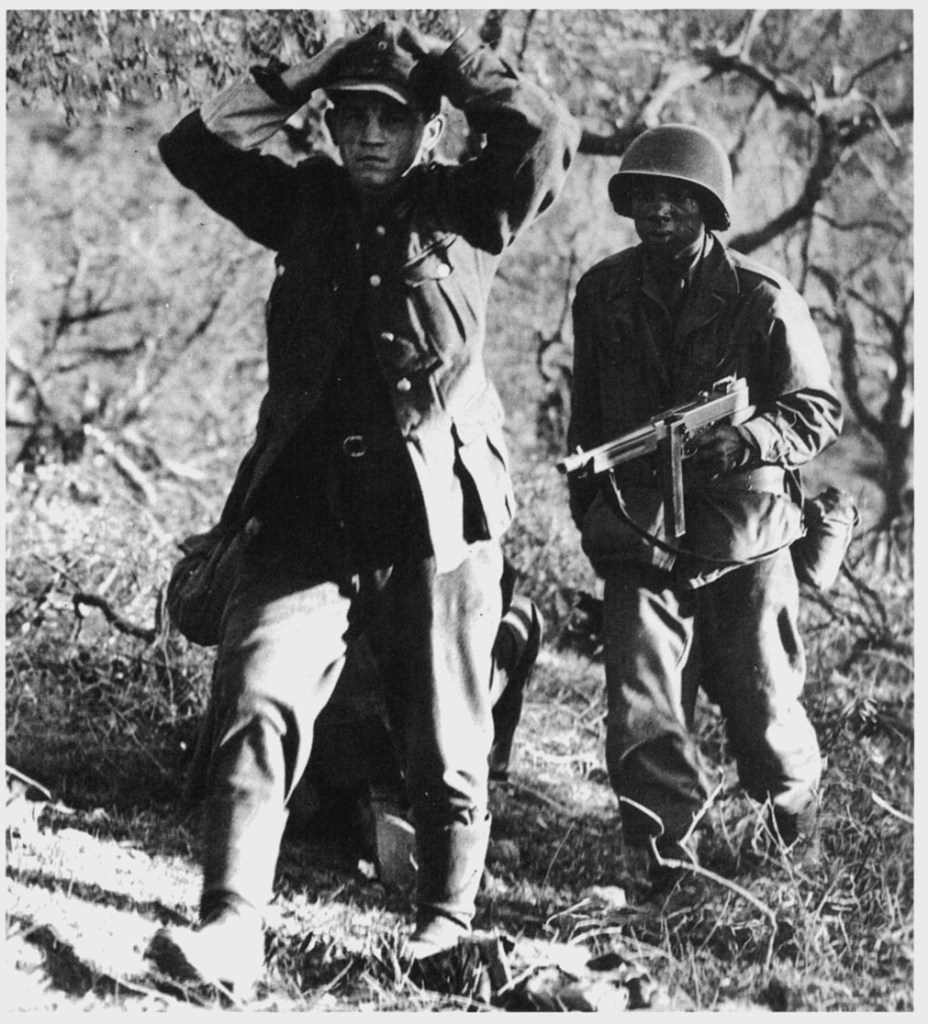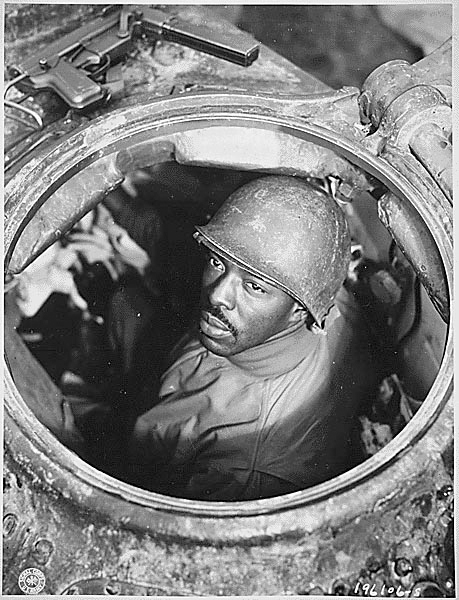Morgan Freeman on the ‘overlooked’ black WWII tank unit that fought Nazis
Morgan Freeman emphatically makes his point in the new History documentary, “761st Tank Battalion: The Original Black Panthers,” which opens with a D-Day battle clip from the 1998 movie “Saving Private Ryan.”
“I grew up going to the movies and if it was a Western or a battle story I ate that stuff up,” Freeman, 86, told The Post. “But somewhere in my early teens it occurred to me, well, that’s fine, but where am I in this? I don’t see any representation of me and, when I did, I didn’t appreciate it as much.
“The biggest [black] stars of my time were Mantan Moreland, Willie Best and Stepin Fetchit.”
Freeman, who says in “761st Tank Battalion” that he’s “been chasing this story forever,” is an executive producer of the intensely researched two-hour documentary, which traces the history of the first black tank unit to serve in combat during World War II –– fighting the Nazis in France and, as part of the 71st Infantry Division, helping liberate the Mauthausen Nazi concentration camp in the closing days of the war.
“History tends to overlook this,” said Freeman, who hosts the documentary and interviews Robert Andry, a 98-year-old survivor of the 761st Tank Battalion, and Secretary of Defense Lloyd J. Austin III (among others) to talk about the battalion’s bravery and sacrifice.
“When we get up to where we are now, American history is American history and then you have black history, which I resent,” Freeman said. “I resent it greatly. I don’t even want to be called African-American because I’m not African — and haven’t been for many generations. This story we’re telling is one of glory, accomplishment, courage — all things that you can think of that sets humans apart from the ordinary.

“Going into battle killing, and being killed is not normal,” said Freeman, who served in the US Air Force from 1955-1959. “When we do it under extreme stress and when we come back from that extreme stress, most of the time we don’t even remember it, and it’s certainly not something we talk about.
“Those of us who can ferret out the history of [the 761st Tank Battalion] should be doing it — and so we are.”
Part of the soldiers’ story is the discrimination they faced once the battalion was formed — training for two years in segregated Camp Claiborne in Louisiana under many racist white Southern Army personnel — and the post-war racism and intolerance the battle-scarred heroes encountered after returning from Europe in 1945.

Phil Bertelsen, who directed “761st Tank Battalion,” said the production utilized various sources as its informational database.
“The research for this began with previous works that were done [on the battalion] but none of which really saw the light of day in the same way,” he said. “There were books — Kareem Abdul-Jabbar being among the authors who’s written about the 761st [in his 2005 book ‘Brothers in Arms’] and Trezzvant Anderson, a black journalist embedded with the battalion; his dispatches were critical in helping us chart their progress.”
[Anderson, who died in 1963, wrote the book “Come Out Fighting: The Epic Tale of the 761st Tank Battalion 1942-1945.”]
Bertelsen said there “was a lot of available information” in the National Archives and other sources and much of it is now digitized, which made it a bit easier to tell the story — including the battalion’s role in liberating Mauthausen.
“That’s been a source of some controversy before when this story was told,” he said. “We made an exerted effort to put [the battalion] there at the time and place in Austria when they were the furthest East and attached to the 71st Infantry Division — which was given credit for liberating that camp. But the fact that the battalion was also there is something that was lost to history — and we were able to confirm what has always been rumored but not reported with accuracy.”
“761st Tank Battalion: The Original Black Panthers,” premieres Aug. 20 at 8 p.m. on History.
Read the full article Here


